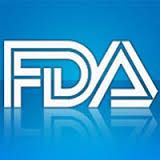Article
Anti-clotting Drug Approved
Author(s):
The US Food and Drug Administration (FDA) approved Savaysa (edoxaban tablets), an anti-clotting drug, to treat patients afflicted with atrial fibrillation prone to stroke and severe blood clots, not caused by a heart valve problem.

The US Food and Drug Administration (FDA) today approved Savaysa (edoxaban tablets), an anti-clotting drug, to treat patients afflicted with atrial fibrillation prone to stroke and severe blood clots, not caused by a heart valve problem.
Additionally, Savaysa had been approved for the treatment of deep vein thrombosis (DVT) and pulmonary embolism (PE) in patients who have already received anti-clotting injections for a period of 5 to 10 days.
A clinical trial involving 21,105 individuals compared 2 dose levels of Savaysa with the anti-clotting drug warfarin for their effects on rates of stroke and dangerous blood clots. Results suggested the higher dose of Savaysa shared similarities to warfarin for stroke risk reduction. Although warfarin had shown favorable results in reducing the risk of stroke in patients with atrial fibrillation, it had been reported to increase the risk of bleeding.
The most common adverse effects reported in clinical trial participants were bleeding and anemia. As with other FDA-approved anti-clotting drugs, bleeding, including life-threatening bleeding, is the most serious risk with Savaysa. However, study results found Savaysa was associated with significantly less major bleeding compared to warfarin. It is important to note no treatment has been proven to reverse the anti-coagulant effect of Savaysa.
Also, a boxed warning notes that “Savaysa is less effective in atrial fibrillation patients with a creatinine clearance greater than 95 milliliters per minute.” A patient’s level of creatinine clearance indicates how well a patient’s kidneys are working by measuring the level of the waste product creatinine in the blood or urine. This should be assessed before initiating therapy with Savaysa.
Norman Stockbridge, MD, PhD, Director of the Division of Cardiovascular and Renal Products in FDA’s Center for Drug Evaluation and Research commented in a news release, “In patients with atrial fibrillation, anti-clotting drugs lower the risk of stroke by helping to prevent blood clots from forming in the heart. It is important to have a variety of these types of drugs available as options for patients.”
Savaysa will be dispensed with a patient Medication Guide providing instructions on its use and safety.


